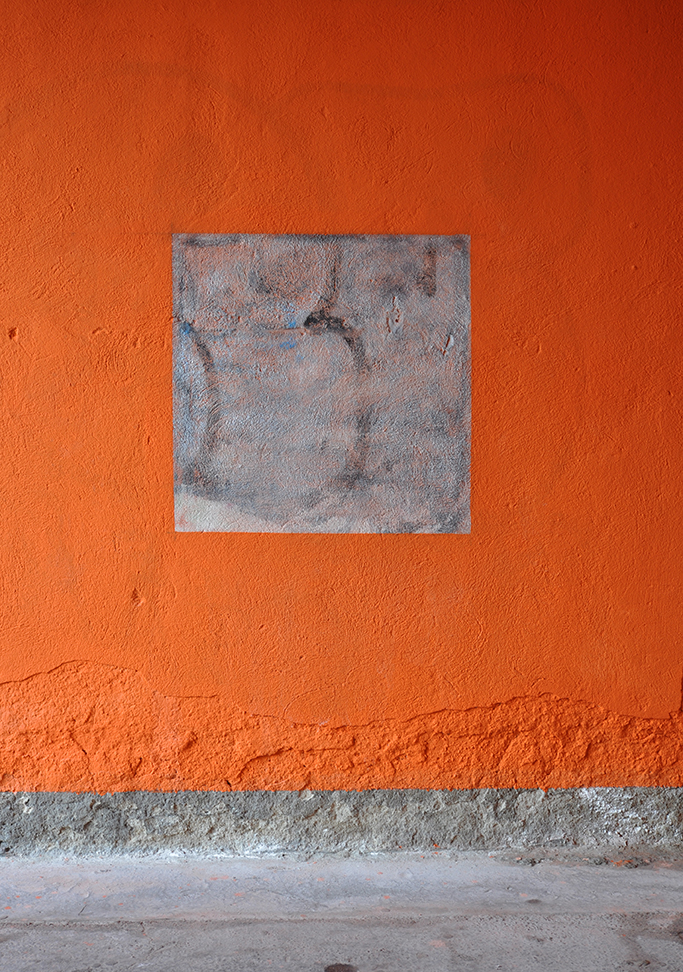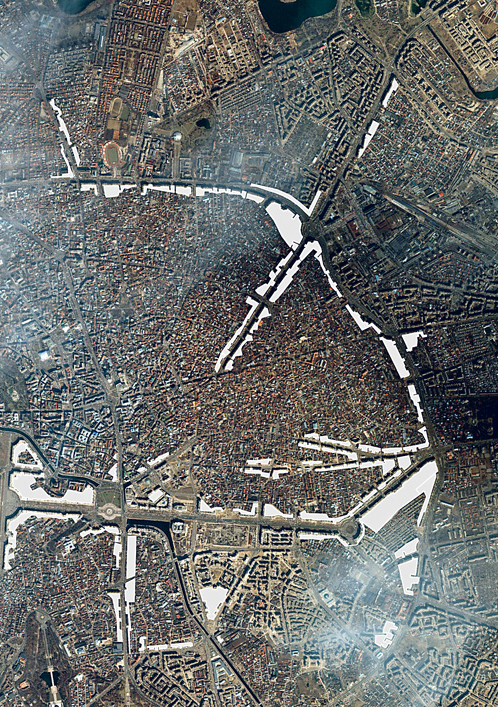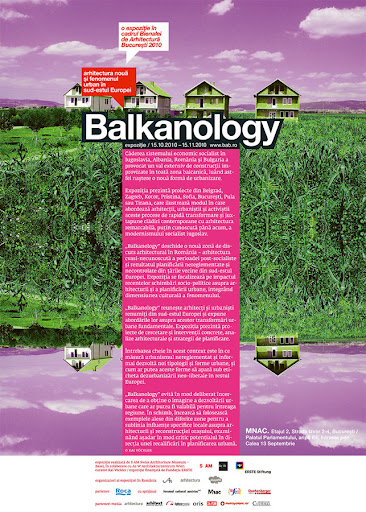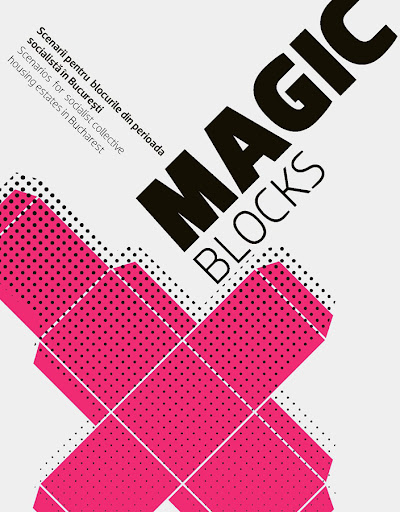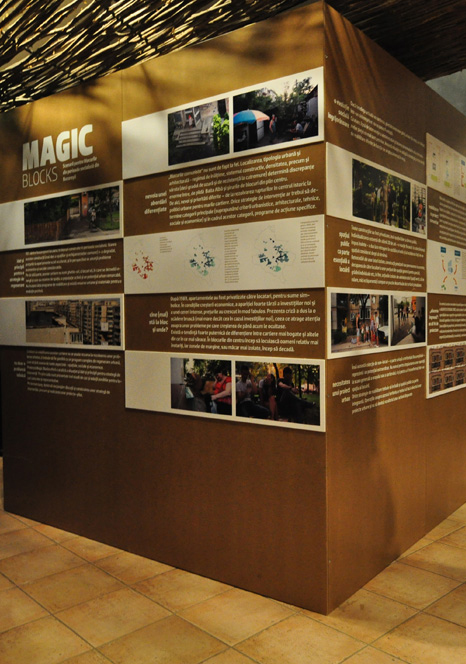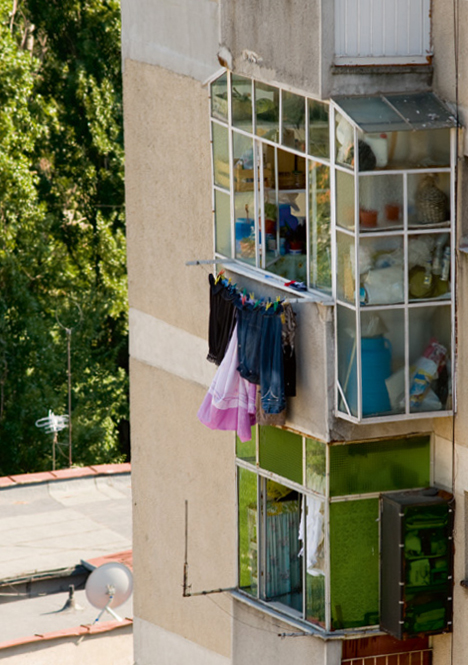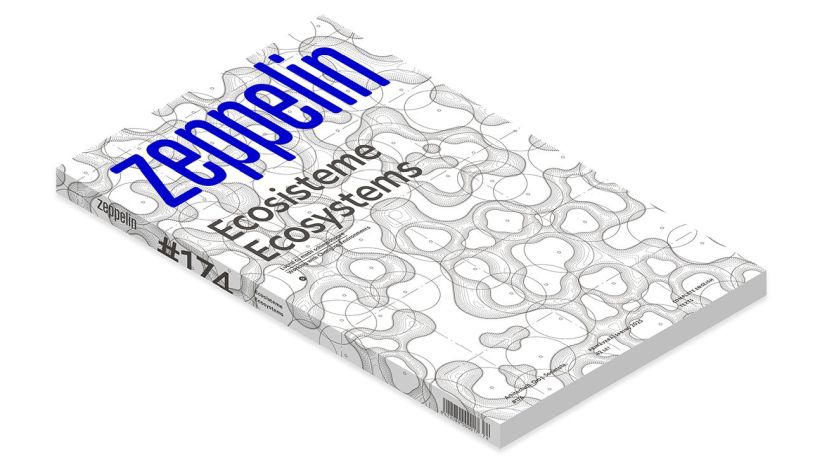Calea Moşilor 2010: an aggressive and grey concrete curtain, specific to the ‘80s, which cuts a historical fabric and divides the city in two: in front of the boulevard a dense and well equipped city, yet ugly and aggressive, and behind, the historical city, hidden and isolated.
Complex projects
+ urban planning project, Bucharest
international conferences: Bucharest, Vienna, Cluj, Istanbul, Moscow
& expo integrated in Balkanology intl. exhibition: Vienna, Bucharest, Belgrade, Sofia, Podgorica
2009-2010
book [EN / RO]
Scenarios for the collective housing from the socialist period in Bucharest.
The results of the first stage of the Magic Blocks programme (studycases, ideas, principles and possible solutions for a complex reviving strategy of the housing areas in the socialist era) were the theme of three international exhibitions: in Berlin, at AedesLand, Savignyplatz (8 September – 29 October 2009), then in Bucharest, (9-26 November 2009) at the Museum of the Romanian Peasant, Aquarium hall, and in Moscow (26-30 may 2010) part of the Moscow ARCH International Architecture and Design Biennale.
The research project provides a synthesis, scenarios, principles and studycases, as well as coherent strategies of intervention and models of projects to rehabilitate the ensembles of the socialist era in Bucharest. Over 70% of the people in Bucharest live in blocks built in the socialist era, which degraded over time and point to considerable economic and social issues.

